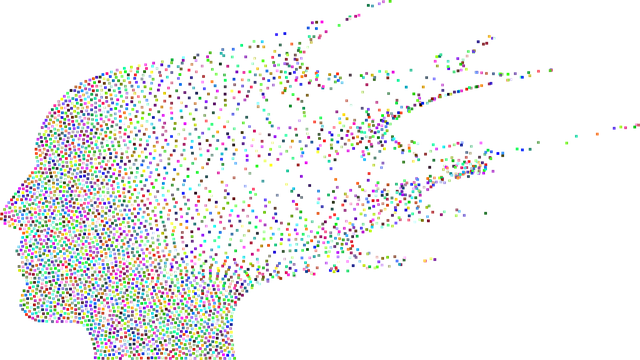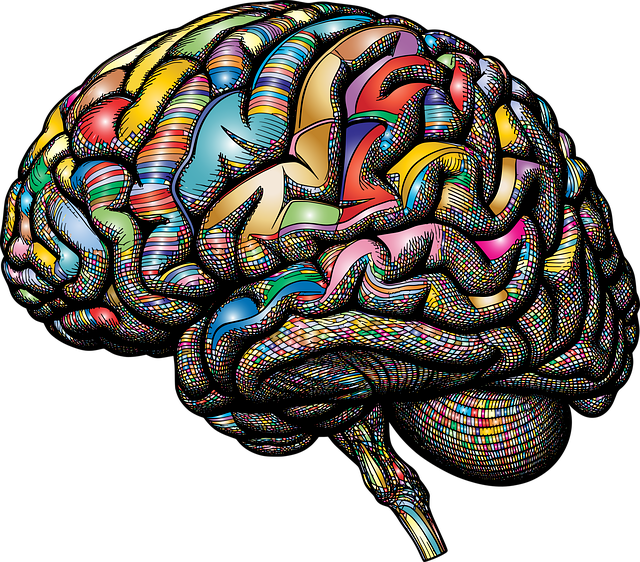Greenwood Village Spanish Speaking Therapy leads in cultural competency, offering tailored mental wellness programs for Hispanic and Latinx communities. They combine quantitative tools (e.g., BDI) with qualitative methods (interviews, surveys) to evaluate program effectiveness. This dual approach informs personalized care improvements, ensuring the program stays relevant and responsive to its community's evolving needs through continuous feedback loops and data-driven adjustments.
Mental wellness program evaluation is a vital component of ensuring effective initiatives, and understanding various methodological approaches is essential. This article explores critical aspects of evaluating mental health programs, focusing on the unique contribution of Greenwood Village Spanish Speaking Therapy. We delve into cultural competency strategies and how they enhance therapeutic interventions. Additionally, it covers data collection techniques to measure client outcomes and satisfaction, emphasizing the importance of feedback loops for continuous improvement. By examining these methods, mental wellness professionals can optimize their services.
- Understanding the Importance of Program Evaluation for Mental Wellness Initiatives
- The Role of Greenwood Village Spanish Speaking Therapy in Promoting Cultural Competency
- Methodological Approaches to Evaluate Therapeutic Interventions
- Data Collection Techniques for Measuring Client Outcomes and Satisfaction
- Implementing Feedback Loops to Enhance and Refine Mental Wellness Programs
Understanding the Importance of Program Evaluation for Mental Wellness Initiatives

Evaluating mental wellness programs is an integral part of ensuring their effectiveness and making informed improvements. This process allows for a deeper understanding of what works and what needs adjustment, especially in initiatives catering to diverse populations like Greenwood Village Spanish Speaking Therapy. By assessing the success of these programs, therapists and organizations can tailor interventions to better support individuals’ unique needs.
Program evaluation provides valuable insights into the impact of various strategies, including communication techniques, empathy-building exercises, and confidence-boosting activities. For example, an evaluation might reveal that a particular communication strategy significantly improves client engagement, leading to more successful outcomes. This knowledge can then be applied to enhance similar programs and even inform the development of new therapeutic approaches, ultimately fostering a more comprehensive and effective mental wellness care system.
The Role of Greenwood Village Spanish Speaking Therapy in Promoting Cultural Competency

Greenwood Village Spanish Speaking Therapy plays a pivotal role in promoting cultural competency within mental wellness programs. By offering services tailored to meet the unique needs of Hispanic and Latinx individuals, this therapy program breaks down barriers often encountered in traditional healthcare settings. It recognizes the importance of addressing mental illness stigma reduction efforts specifically within these communities, fostering an environment where seeking help is encouraged and stigmatized views are challenged.
The program’s cultural competency approach integrates emotional intelligence into its core practices. Therapists employ techniques that respect individual cultural backgrounds and beliefs while teaching valuable skills for managing mental wellness. Through this inclusive practice, Greenwood Village Spanish Speaking Therapy contributes to the development of effective mental wellness coaching programs that resonate with diverse populations. It ensures that support is accessible and meaningful, ultimately enhancing the overall effectiveness of mental health initiatives.
Methodological Approaches to Evaluate Therapeutic Interventions

Evaluating therapeutic interventions is a multifaceted process that requires robust methodologies to ensure effectiveness and impact. One key approach involves quantifying changes in participants’ symptoms, often through standardized assessment tools tailored to specific mental health concerns. For instance, at Greenwood Village Spanish Speaking Therapy, practitioners employ measures like the Beck Depression Inventory (BDI) to track mood disorders, providing a clear metric for progress.
Additionally, qualitative methods offer valuable insights into clients’ experiences and perceptions. This includes structured interviews, focus groups, and self-report surveys that delve into areas such as self-awareness exercises, mood management techniques, and self-esteem improvement. By combining quantitative data with rich qualitative narratives, therapists at Greenwood Village gain a comprehensive understanding of intervention efficacy, allowing for refined strategies and personalized care.
Data Collection Techniques for Measuring Client Outcomes and Satisfaction

Evaluating a mental wellness program involves meticulous data collection to measure client outcomes and satisfaction. One effective technique is utilizing structured questionnaires and surveys that assess clients’ perceptions of their therapeutic journey. These tools can gauge improvements in symptoms, self-care routine development for better mental health, and overall well-being. At Greenwood Village Spanish Speaking Therapy, tailored surveys are designed to capture client feedback on the quality of services received, therapist communication, and program effectiveness.
Additionally, qualitative methods like individual interviews or focus groups provide deeper insights into clients’ experiences. This allows participants to share personal stories, offer suggestions for improvement, and highlight aspects that resonated with them, such as mental health education programs design and stress management workshops organization. By combining quantitative and qualitative data, mental wellness programs can gain a comprehensive understanding of client satisfaction and make informed adjustments to better serve their community.
Implementing Feedback Loops to Enhance and Refine Mental Wellness Programs

Implementing feedback loops is a powerful strategy to enhance and refine mental wellness programs, ensuring they remain effective and tailored to the evolving needs of participants, especially within diverse communities like Greenwood Village Spanish Speaking Therapy. By actively seeking input from clients, therapists, and other stakeholders, organizations can identify areas for improvement and make data-driven adjustments. This iterative process encourages a culture of continuous learning and adaptation, vital for optimizing mental health support.
Regular feedback mechanisms can take various forms, such as post-program evaluations, focus groups, or one-on-one interviews. These channels allow individuals to share their experiences, offer suggestions, and highlight aspects that resonated or required improvement. For instance, integrating self-care practices, conflict resolution techniques, and social skills training into mental wellness programs can be enhanced based on participant feedback. This collaborative approach not only improves program quality but also fosters a sense of ownership and engagement among those accessing these services.
Evaluating mental wellness programs is essential for ensuring their effectiveness and adaptability, especially in diverse communities. As highlighted by Greenwood Village Spanish Speaking Therapy, cultural competency is a cornerstone of successful therapeutic interventions. By employing robust methodological approaches, data-driven techniques, and feedback loops, mental health initiatives can be refined to meet the unique needs of all individuals, fostering better outcomes and satisfaction among clients. These strategies are crucial for navigating the complex landscape of mental wellness support and creating inclusive, impactful programs.












